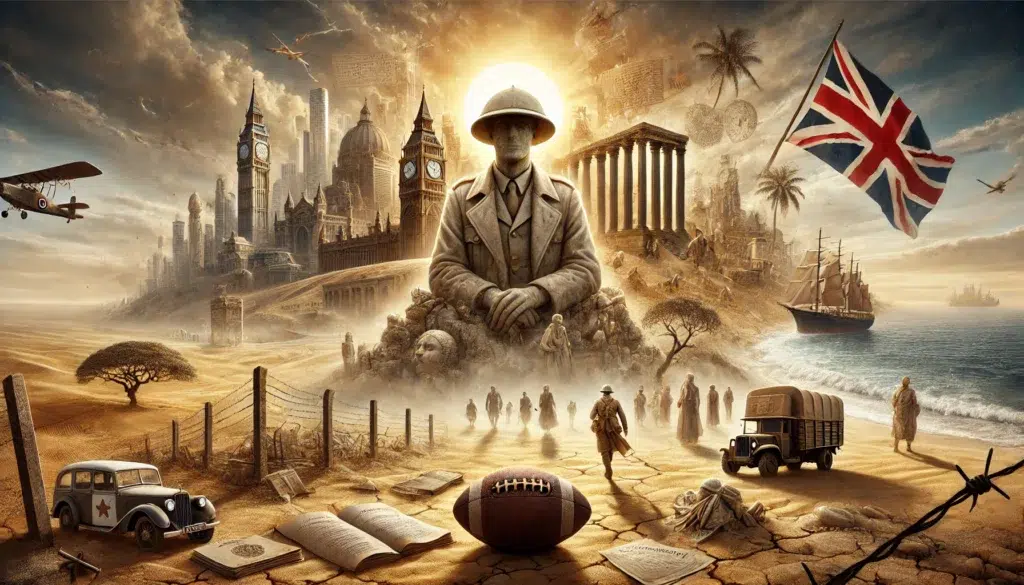This article provides a detailed critique of Enlightenment ideals, exploring their long-term impact on modern society. I think that the ‘enlightenment’ will ultimately be the greatest European contribution to the world. But that doesn’t mean it can’t be criticized. It seems that that no reasonable person can be against the ideals of the Enlightenment. The Enlightenment itself was about the promotion of reason over belief. The problem is that many people are not reasonable. In any case, reason itself can get bogged down in complexity. A system based on reason promotes the interests of intelligent people because they are better able to use reason. And if we are not smart enough ourselves, we hire smart lawyers, bankers and consultants who use smart reasoning to gain our advantage out of sight of the population who cannot follow it all. That should lead to a revolt of the less smart people.
A logical consequence of rationalism is meritocracy. In itself a nice idea, that one is rewarded according to merit. But because merit is something abstract and difficult to measure, it is not illogical to let the market determine what the merit is. And from there, neoliberalism becomes a logical step. Of course, it is not the case that Descartes or Spinoza had neoliberalism in mind or that there is a direct and inevitable connection to their thinking, but the Enlightenment does legitimize neoliberalism. It is the beginning of its acceptance.
Rationalism and reason can also lead to detachment and alienation. It may seem good to attack belief in religion or the absolutism of the king, but it leaves an emptiness. In the nineteenth century this was filled by nationalism and in the twentieth century by fascism and communism – and, perhaps even consumerism.
In Thomas Mann’s ‘Magic Mountain’ he makes very an interesting analyses. The story is about a young German boy who visits a cousin at a spa in Davos. But once there, he won’t leave. He is slightly feverish and is easily persuaded to stay there (9 years old). He likes the quiet life of food (5 copious meals a day), rest (between meals), and daily walks. He also likes meeting all kinds of interesting personalities. One of them, Settembrimi, an Italian, is a passionate defender of the Enlightenment. Thomas Mann makes him a bit ridiculous because of his bombastic idealistic reasoning and shabby appearance. His alter-ego is Naphta, an unsightly little man who lives in luxury. The two engage in intellectual discussions in which Naphta defends conservatism and the order of the church. The boy is torn between one and the other. He enjoys the discussions that we would now find far too theoretical and pompous and not to the point.
Then comes a third person: ‘Peeperkorn’. He is a stupid old, very large and very rich Dutch man. He has a huge personality and believes everything and everyone revolves around him. He is a natural leader and determines what happens around him. Why that is the case is a mystery. Some people have such a strong conceit that it attracts others. (Hitler might be an example of this. Donald Trump would like to believe that he is the same!) The young German is also fascinated by it and both other gentlemen are outplayed.
The book was published in 1924, and Thomas Mann wanted to criticize the German middle class for their complacency and lack of backbone to resist the unreasonable, particularly the rise of Nazism. In its description of people being attracted to ideologues and charlatans, it is still relevant today. It is also a description of how the belief in reason, which the Enlightenment created, could also lead to a belief in false prophets.
Another example of this is the way in which people are very happy to follow ‘influencers on social media. The increase in the number of anti-vaccers, or those who believe the false hoods of Donald Trump are other examples of the way in which a move against faith in absolutism and towards reason has led people to believe that almost any reason is acceptable.
Another problem that the Enlightenment has left us with is individualism. This does not follow directly from the Enlightenment. The individual is the most logical unit in an enlightened system. Every group you can think of (family, family, city, country, church, race) form less obvious units that are also very different from each other.
The Enlightenment was also the liberation of the individual from the straitjacket of the system. Human rights, freedom of conscience, freedom of religion and freedom of expression, etc., are focused on the individual. Of course, individuals can unite to defend their interests. That is what parliament was meant to be and why political parties came into being.
But man is essentially a group animal. We see this most clearly with groups of hooligans who tear down half the city, but individually reject any responsibility. We see it everywhere, in every schoolyard, at work, at the sports field, in the pub and in politics.
It is this group dynamic that ensures that a society can turn from tolerant to intolerant like a leaf on a tree, as is now the case in the Netherlands. Xenophobic sentiments are now in vogue, tolerance for gays has dropped drastically in a few years. 96%!! of Dutch Jews have experienced anti-Semitism in the past year.
Systems that are focused on the individual cannot withstand a system that is based on groups. I think a lot of Trump supporters would find it perfectly legitimate to carry out an attack on Biden. This groupthink naturally leads to discrimination, xenophobia, homophobia and racism etc. I believe that the rule of law and politics do not resist the attacks on democratic Enlightenment ideals enough. It’s not that they don’t speak out against, say, anti-Semitism, but they don’t fight the evil at its root. It’s the formation of groups on social media. Within that group, people are easily radicalized and support the perpetrators. But it’s easy to distance oneself when things go wrong.
At the heart of enlightenment is individual responsibility. That works out well for the smarter, more talented, independent individuals. But for large groups, that doesn’t work out so well. They want change and they want certainty. This is what a personality like Hitler recognised and used. It is what a great many ‘leaders’ on social media are doing today. And they want change. In it, they follow their feelings and the ‘personalities’ just like in the schoolyard. Just like in ‘Lord of the Flies’.
I think Marx (and Engels?) had good insights. By turning it into a class struggle, both idealism and group sentiment were addressed, while rationality remained leading. In the twentieth century, social democracy has lost this momentum. Will it come back?
As long as democracy exists, nonviolent change is possible.




Greetings from Los angeles! I’m bored at work so I decided to check out your website on my iphone during lunch break. I love the knowledge you present here and can’t wait to take a look when I get home. I’m shocked at how fast your blog loaded on my cell phone .. I’m not even using WIFI, just 3G .. Anyhow, awesome blog!
That is very fascinating, You are an overly professional blogger. I’ve joined your rss feed and look ahead to searching for more of your excellent post. Also, I’ve shared your website in my social networks!
One more important part is that if you are a senior, travel insurance pertaining to pensioners is something you need to really think about. The mature you are, the greater at risk you are for getting something terrible happen to you while in another country. If you are definitely not covered by a few comprehensive insurance cover, you could have quite a few serious difficulties. Thanks for expressing your hints on this web site.
Thanks a bunch for sharing this with all of us you really know what you are talking about! Bookmarked. Kindly also visit my website =). We could have a link exchange agreement between us!
I just could not leave your web site before suggesting that I actually loved the usual information an individual provide in your guests? Is gonna be again ceaselessly to check up on new posts
Hello everyone!
I came across a 158 interesting tool that I think you should take a look at.
This platform is packed with a lot of useful information that you might find interesting.
It has everything you could possibly need, so be sure to give it a visit!
[url=https://whatsag.com/blog/general/social-media-is-it-time-for-a-break.php]https://whatsag.com/blog/general/social-media-is-it-time-for-a-break.php[/url]
And remember not to overlook, everyone, — a person at all times may within this piece locate answers for the most the absolute confusing queries. We attempted to present all of the information using the most extremely understandable way.